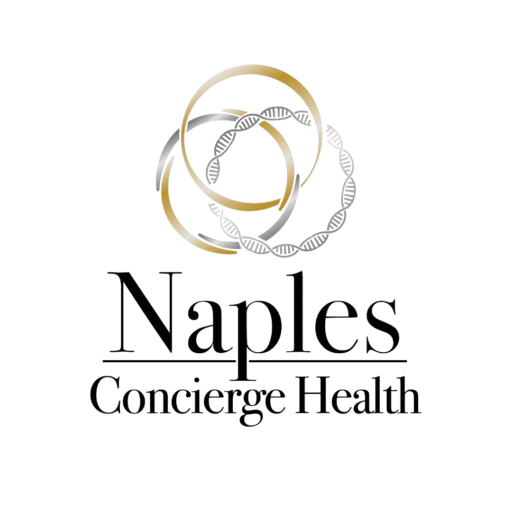Bloating is a common and uncomfortable experience encountered by many individuals.
The sensation of fullness and swelling in the abdomen can be caused by many factors, including diet, lifestyle, and digestive processes.
While bloating often has benign origins, it can be a sign of more serious concerns like food intolerances and gastrointestinal disorders.
Understanding bloating and its potential links to undiagnosed health concerns is crucial for the effective management of symptoms and receive the appropriate advice and care from healthcare professionals.
Below, we will explore bloating, potential undiagnosed concerns, and the ways concierge medicine through Naples Concierge Health can improve patient outcomes.
When Bloating Is More Than Just Discomfort: The Need for Proper Diagnosis
Bloating is not necessarily a sign of a significant health concern. In fact, between 10% and 25% of otherwise healthy individuals experience occasional abdominal bloating.
As many as 75% of individuals who have not been diagnosed with irritable bowel syndrome describe their bloating symptoms as moderate to severe. Bloating can have many causes, including:
Gas
Gas occurs naturally as part of the body’s digestive process. We ingest some gasses when drinking carbonated beverages or swallowing air but most of the time, that gas is released through belching before it even reaches the intestines.
The gas in your intestines is most commonly caused by fermentation, the process through which the gut bacteria digest carbohydrates.
Hormones
75% of women report experiencing bloating before or during their menstrual period. Bloating is also a commonly reported complaint during the wild hormonal fluctuations that can occur during perimenopause.
There are several ways that female reproductive hormones can impact bloating and digestion, including:
- Fluid retention
- Gas build-up
- Digestive back-up
When estrogen levels increase and progesterone levels drop, women often experience bloating from fluids. This, combined with the increased volume of the uterus before menstruation, can lead to a bloated stomach.
Hormones can also impact digestion. Estrogen and progesterone can either slow or speed up motility, increasing intestinal gas.
Estrogen receptors found in the GI tract can also affect sensitivity, and make you feel more bloated.
Digestive Contents
Your digestive contents can include solids, liquids, and gas. These contents can build up in your digestive system, backing up or restricting your digestive tract or impair the muscles that move the contents through the body.
When digestive contents build-up, there is less room for the normal amounts of gas that are produced, and less room in the abdomen in general, making you feel uncomfortable.
Digestive build-up can be caused by:
- Constipation
- Recent weight gain
- Motility disorders
- Bowel obstructions
When Bloating Is Cause for Concern
Bloating is often temporary and comes and goes depending on hormonal cycles, what you’ve eaten, and more. But it usually goes away.
When bloating doesn’t go away or gets worse, it can be a sign of a digestive health issue. And you don’t want to have undiagnosed gastrointestintal issues for too long. This is especially true if you experience other symptoms like fever or vomiting. In these instances, you should seek medical attention and a proper diagnosis.
Conditions of concern include:
- Inflammation of the stomach or intestines: Known as gastritis or enteritis, respectively, these concerns are typically caused by a bacterial infection or the overconsumption of alcohol. This inflammation may also be tied to peptic ulcers.
- Ascites: This condition is the gradual build-up of fluid in the abdominal cavity, typically caused by liver disease, heart failure, or kidney failure.
- Pancreatic Insufficiency: In this instance, the pancreas is unable to produce enough digestive enzymes to carry out proper digestion.
- Cancer: Multiple types of cancer can lead to the experience of bloating. These include ovarian, uterine, colon, pancreatic, stomach, or mesenteric cancer.
- Irritable Bowel Syndrome (IBS): IBS has several common symptoms, including constipation, diarrhea, gas, and bloating. While IBS does not cause significant risks to the digestive system, it should be diagnosed, addressed, and managed through medications, diet, and lifestyle changes.
- Crohn’s and Colitis: These inflammatory conditions can damage parts of your small bowels, restricting and narrowing passages for digestive contents.
If you experience chronic or ongoing bloating, distention, and abdominal discomfort, it is important to talk to a healthcare provider. With a proper diagnosis, you can treat the underlying cause, reduce risks to your long-term health, and improve your quality of life.
Naples Concierge Health’s Approach to Addressing Bloating and Undiagnosed Conditions
At Naples Concierge Health, we take great care to address the specific needs of each individual.
We offer convenient next-day appointments, allowing you to speak to a healthcare provider in a timely manner.
Our detailed patient assessments consider all aspects of your health and lifestyle, and our advanced diagnostic services provide advanced screenings to uncover any potential underlying conditions, empowering you to make informed decisions about your health journey.
We can provide medical support for complex diagnoses, ensuring that no matter what comes up in your assessment, you have access to a knowledgeable, capable, medical team.
From lab testing and imaging to lifestyle and dietary assessments, Naples Concierge Health has you covered.
The Patient Profile: A Real Case of Undiagnosed Gastrointestinal Issues
At Naples Concierge Health, our commitment to thorough, personalized care came to life when we encountered Sarah, a patient whose persistent bloating and undiagnosed gastrointestinal distress had become a daily challenge.
Seeking relief, Sarah met with her dedicated physicians for a consultation. Her physician took the time to detail her dietary habits, lifestyle, and medical history, which was not only important for a proper medical diagnosis but to also build trust and comfort.
The comprehensive evaluation also included a series of diagnostic tests, such as blood work and imaging, as you can’t always identify what the issue is without looking behind the curtains.
The Naples team connected Sarah to a trusted gastroenterologist for testing. The results reveal a diagnosis of food intolerances and gut dysbiosis. With her diagnosis in hand, Sarah and her healthcare team worked together to create a tailored treatment plan, which included dietary modifications, targeted supplements, and lifestyle changes aimed at optimizing her gut health. Regular follow-ups ensured that Sarah felt supported throughout her journey.
Because of Naples’ concierge service, Sarah was able to connect with a gastroenterologist within a few days rather than weeks. This combined with the holistic approach and diagnostic resources at hand finally got Sarah the chronic bloating treatment she needed.
Treating the Root Cause: Personalized Solutions for Long-Term Relief
As demonstrated by the above case study, we do not diagnose patients and then leave them to sort things out on their own.
Our team acts as a co-pilot, helping patients navigate their condition and any recommended changes and treatments.
Once a diagnosis is received, we can provide personalized medical care, such as connecting the patient with specialists, medications, dietitians, and more, This approach has far better outcomes and long-term success, so you can go about your life and feel more relief and enjoyment on a daily basis.
Patient outcomes are improved when collaborating with healthcare professionals and identifying a personalized solution instead of a one-size-fits-all plan.
The Role of Concierge Medicine in Managing Complex Health Issues
A concierge approach to managing complex health issues or undiagnosed conditions has a number of benefits.
With this approach, patients are given consistent, personalized care helping them better manage symptoms and improve long-term outcomes.
Whether it is the convenience of next-day appointments or ongoing planning, monitoring, and support, Naples Concierge Health has the team and resources necessary to address chronic bloating and any possible undiagnosed issues, helping patients live their best lives.
Reach out today to schedule a consultation and take the first steps towards battling your bloated belly and improving your health.

